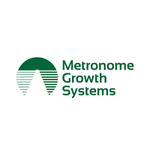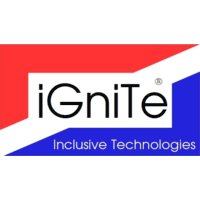Description

DATAHUB

Pawnbroker
Comprehensive Overview: DATAHUB vs Pawnbroker
DATAHUB and Pawnbrokers operate in distinct sectors and serve different purposes. Here's an overview of each, including their primary functions, target markets, market share, user base, and key differentiating factors.
DATAHUB
a) Primary Functions and Target Markets:
- Primary Functions: DATAHUB generally refers to platforms or services designed to aggregate, manage, and distribute data. These platforms are used for data collection, storage, processing, and sharing. They often provide tools for data analytics, visualization, and reporting.
- Target Markets: DATAHUB platforms target various sectors, including:
- Enterprises looking to leverage data for business intelligence and decision-making.
- Researchers and academic institutions seeking data for scientific studies.
- Government agencies aiming to manage public or organizational data.
- Developers and data scientists in need of datasets for machine learning and AI projects.
b) Market Share and User Base:
- Market Share: The market for data management and analytics platforms is competitive, with numerous players like AWS, Google Cloud, and Microsoft Azure providing extensive data solutions. Specific market share for a DATAHUB service would depend on its particular niche, capabilities, and geographic reach.
- User Base: The user base typically includes IT professionals, data analysts, researchers, and business strategists. Usage varies from small businesses to large enterprises, depending on the platform’s scalability and customization capabilities.
c) Key Differentiating Factors:
- Integration Capabilities: Ease of integrating with existing systems and third-party applications.
- Data Security: Levels of encryption and compliance with data protection regulations.
- Scalability and Flexibility: Ability to handle growing data volumes and adapt to diverse data types.
- User Interface and Experience: Ease of use, intuitive dashboard designs, and advanced analytics features.
Pawnbroker
a) Primary Functions and Target Markets:
- Primary Functions: Pawnbrokers provide short-term loans to individuals in exchange for personal items as collateral, which can be redeemed upon repayment of the loan with interest. They may also sell unredeemed items.
- Target Markets:
- Individuals in need of quick cash, often without access to traditional banking services.
- Consumers looking for deals on second-hand goods.
- Local communities, often in lower-income or urban areas, relying on pawnbroking for financial flexibility.
b) Market Share and User Base:
- Market Share: The pawnbroking industry is highly localized with numerous small, independent operators and some larger chains. Market share can vary significantly by region and the presence of state or national chains.
- User Base: Typically consists of individuals needing immediate cash flow solutions or interested in purchasing affordable, used goods. This often includes customers with limited or poor credit histories.
c) Key Differentiating Factors:
- Loan Terms and Interest Rates: Variations in the terms offered, interest rates applied, and conditions for redeeming items.
- Items Accepted as Collateral: Some pawnshops might specialize in certain types of items, like electronics, jewelry, or firearms.
- Customer Service and Reputation: Trust and reliability play crucial roles in attracting and retaining customers in the pawnbroking business.
- Location and Accessibility: Proximity to urban centers or areas with high foot traffic can influence a pawnbroker's success.
Comparison
DATAHUB platforms operate mainly within the tech and data sectors, catering to businesses and organizations looking for advanced data handling capabilities. In contrast, pawnbrokers serve as financial service providers, offering loans against personal possessions, and are more prevalent in consumer-facing roles. While DATAHUB products emphasize technological integration and data management, pawnbrokers focus on financial accessibility and merchandise trading. The differentiation in their operational focus and target audience highlights the contrasting nature of these two offerings.
Contact Info

Year founded :
2023
Not Available
Not Available
Netherlands
Not Available

Year founded :
Not Available
Not Available
Not Available
Australia
Not Available
Feature Similarity Breakdown: DATAHUB, Pawnbroker
To provide a detailed analysis of the feature similarity between DATAHUB and Pawnbroker, I'll break down the aspects you're interested in. Please note that the specific features of each product might vary depending on their latest updates or versions.
a) Core Features in Common:
1. Data Management:
- DATAHUB: Primarily designed for data repository and management, focused on organizing datasets and facilitating data sharing.
- Pawnbroker: While mainly focused on financial transactions, it includes data management capabilities to store and track inventory and customer information.
2. Reporting and Analytics:
- Both platforms offer reporting capabilities.
- DATAHUB: Focuses on data analytics and visualization tools tailored for dataset interpretation.
- Pawnbroker: Provides financial reporting features, such as transaction histories and inventory valuations.
3. Integration and APIs:
- Allow integration with third-party tools to enhance their functionalities.
- DATAHUB: Typically integrates with other data tools for seamless data processing.
- Pawnbroker: May offer APIs for financial or business management software integration.
4. Security Features:
- Emphasize data security and access control.
- DATAHUB: Implements security protocols for data access and sharing.
- Pawnbroker: Ensures secure handling of customer and inventory data.
b) User Interface Comparison:
1. DATAHUB UI:
- Typically emphasizes a clean and functional design tailored to data scientists and analysts.
- Offers dashboard and visualization tools to help users interact with large datasets efficiently.
- UI is generally designed for technical audiences who require extensive data manipulation capabilities.
2. Pawnbroker UI:
- Aims at ease of use for everyday retail transactions, focusing on intuitive layouts for quick customer and inventory management.
- Features straightforward navigation for financial transactions and pawnshop operations.
- Designed for users with various technical backgrounds, often prioritizing usability in retail environments.
c) Unique Features:
DATAHUB Unique Features:
- Collaborative Data Sharing: Offers enhanced collaboration features for multiple users to work on datasets simultaneously.
- Advanced Data Processing: Provides tools for advanced data analytics, machine learning integration, and extensive data manipulation.
Pawnbroker Unique Features:
- Financial Transaction Management: Includes specialized features for managing loans, interest calculations, and regulatory compliance specific to pawnshops.
- Inventory Valuation: Offers tools to assess the value of pawned items and manage inventory dynamics effectively.
Summary:
While DATAHUB and Pawnbroker share some core features such as data management, reporting, and security functionalities, they cater to different industry needs. DATAHUB excels in data analytics and collaboration, while Pawnbroker focuses on financial transaction management and inventory control specific to pawnshops. The user interfaces reflect their industry focus, with DATAHUB targeting technical users and Pawnbroker prioritizing usability for retail operations.
Features

Not Available

Not Available
Best Fit Use Cases: DATAHUB, Pawnbroker
To determine the best fit use cases for DATAHUB and Pawnbroker, it's essential to understand their core functionalities and strengths. Here's a breakdown based on typical product features and industry needs:
DATAHUB
a) Best Fit Use Cases:
-
Data-Driven Businesses: DATAHUB is ideal for businesses that rely heavily on data analytics and insights. This includes industries like finance, healthcare, and e-commerce, where large volumes of data are processed to derive insights.
-
Big Data Projects: Companies involved in big data projects that require data integration from multiple sources would benefit significantly from DATAHUB. This platform is often suited for companies that need a centralized system for managing vast datasets.
-
Business Intelligence (BI) and Analytics: Enterprises that need robust BI capabilities to generate reports and dashboards for decision-making will find DATAHUB advantageous. It is particularly useful for sectors like retail and supply chain, where data visualization can drive business outcomes.
-
Data Management and Governance: Organizations looking for efficient data management and governance solutions can use DATAHUB to ensure compliance, quality, and security of their data, which is critical in regulated industries like pharmaceuticals and banking.
d) Industry Verticals and Company Sizes:
- Industry Verticals: Financial services, healthcare, retail, logistics, and manufacturing.
- Company Sizes: Mid to large enterprises that handle complex data requirements and have established IT infrastructures.
Pawnbroker
b) Best Fit Use Cases:
-
Financial Services for Short-Term Lending: Pawnbroker solutions are best suited for financial businesses or small lenders offering pawn loans or collateral-based lending services. They provide systems for managing transactions, interest rates, customer relationships, and inventory.
-
SME and Retail Operations: Small and medium-sized pawn shops or retail outlets that need straightforward point-of-sale (POS) and inventory management systems can benefit from Pawnbroker solutions.
-
Customer and Inventory Management: Businesses that need a seamless blend of customer management with detailed inventory tracking, particularly those dealing with second-hand goods or jewelry, would find Pawnbroker effective.
d) Industry Verticals and Company Sizes:
- Industry Verticals: Retail pawn shops, small-scale financial services, and consignment shops.
- Company Sizes: Small to medium-sized businesses that require cost-effective and easy-to-deploy solutions for transaction management and inventory control.
In summary, DATAHUB is best for enterprises and industries focused on leveraging big data analytics for strategic decision-making, whereas Pawnbroker is tailored for small businesses engaged in collateral lending and retail operations, needing efficient and manageable systems.
Pricing

Pricing Not Available

Pricing Not Available
Metrics History
Metrics History
Comparing undefined across companies
Conclusion & Final Verdict: DATAHUB vs Pawnbroker
Conclusion and Final Verdict for DATAHUB vs. Pawnbroker
-
Best Overall Value
After evaluating all factors, DATAHUB offers the best overall value. This is primarily due to its comprehensive feature set, scalability, and flexibility, which makes it more suitable for a wider range of applications compared to Pawnbroker.
-
Pros and Cons
-
DATAHUB:
-
Pros:
- Comprehensive Features: DATAHUB provides an extensive range of features that cater to data management, integration, and analytics, making it a versatile choice for diverse projects.
- Scalability: It can handle varying sizes of data from small to enterprise scale, making it future-proof as your needs grow.
- Flexibility: Offers compatibility with multiple data sources and platforms, allowing seamless integration with existing systems.
- Strong Support and Community: Backed by a robust support system and active community that can be invaluable for troubleshooting and optimization.
-
Cons:
- Cost: Generally priced higher than some alternatives, which could be a concern for small businesses or individual users with limited budgets.
- Complexity: The broad feature set can lead to a steeper learning curve for new users, requiring time and resources to fully leverage its capabilities.
-
-
Pawnbroker:
-
Pros:
- Cost-Effective: Typically more budget-friendly, making it an attractive option for smaller businesses or those with tight financial constraints.
- User-Friendly Interface: Simpler setup and operational processes that cater to users with fewer technical skills.
- Focused Functionality: Provides targeted solutions that address specific needs without overwhelming users with unnecessary features.
-
Cons:
- Limited Features: May lack some of the advanced functionalities required for complex or large-scale projects.
- Scalability Concerns: May not scale as effectively with the significant growth of data, leading to potential performance bottlenecks.
- Integration Limitations: Might face challenges when integrating with a wide range of external systems or newer technologies.
-
-
-
Recommendations for Users
-
For Users Prioritizing Value and Long-Term Growth:
- Recommendation: Opt for DATAHUB. It is better suited for users who anticipate their data needs evolving over time and require a platform that can grow with them.
- Consider: Be prepared for the initial learning curve and invest in necessary training to maximize benefits.
-
For Users with Specific or Limited Requirements:
- Recommendation: Consider Pawnbroker if your immediate needs are focused and your budget is limited.
- Consider: Evaluate whether its limited feature set will suffice for your goals in the foreseeable future and be cautious of potential growth limitations.
-
Ultimately, the decision between DATAHUB and Pawnbroker should be guided by your specific project requirements, budget considerations, and the long-term strategic goals of your organization.
Add to compare




